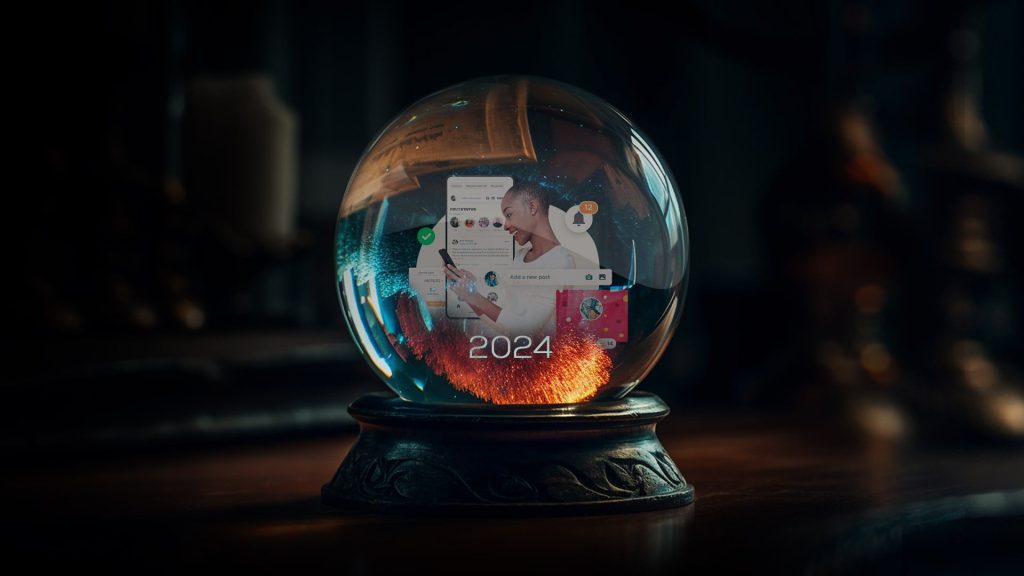
2024 Crystal Ball: Gazing into the future of Mobile App Industry
Mobile application development has evolved significantly over the past two decades, with the last decade focusing on data-driven personalized applications. The introduction of 5G has accelerated this trend, supporting large data transfers at high speeds and fostering the development of data-intensive, personalized, and experiential applications.
In 2024, we anticipate several key trends in mobile app development:
- 1. 5G Technology: The deployment of 5G infrastructure will enhance mobile application development capabilities, allowing for real-time streaming, virtual and augmented reality, and instant Internet of Things connectivity. This will also impact industries like healthcare, transportation, and entertainment.
- 2. Wearable Mobile App Development: With the wearable technology market projected to grow significantly, there will be a surge in wearable mobile app development, focusing on usability and diverse application options.
- 3. Artificial Intelligence and Machine Learning: AI and ML will see increased application in mobile apps, particularly in AI-generated content and data-intensive operations, facilitated by 5G's high-speed internet.
- 4. Augmented and Virtual Reality (AR/VR): With 5G's low-latency data transmission, there will be a rise in AR/VR applications across various sectors, including gaming, healthcare, and education.
- 5. Cloud-based App Development: The trend towards cloud-based mobile apps will continue, driven by the benefits of data synchronization and seamless updates.
- 6. On-Demand Mobile Apps: The popularity of on-demand services like Uber and Airbnb will lead to more marketplace-style mobile apps, providing direct consumer services.
- 7. Progressive Web Apps (PWAs): PWAs will become more prevalent, especially in e-commerce and healthcare, due to their practicality and lower storage requirements.
- 8. Voice Feature: Voice-based AI assistants, such as Siri and Alexa, will evolve, with more service-specific voice assistants emerging.
- 9. Location Feature: Geolocation mapping will become more integral to mobile apps, enhancing customer engagement across various sectors.
- 10. Dark Mode and Gradients: These design features will continue to be popular due to their aesthetic appeal and practical benefits.
- 11. Interoperability and Integration: Apps will increasingly be designed for seamless integration and interoperability across various devices and platforms, enhancing user experience and functionality.
- 12. Blockchain Technology: The integration of blockchain technology in mobile apps for enhanced security and data integrity, particularly in financial and contractual applications.
- 13. Personalized AI Experiences: With advancements in AI, apps will offer more personalized and context-aware experiences, using data analytics to tailor content and interactions to individual users.
- 14. Eco-Friendly App Development: A growing focus on sustainability will lead to the development of eco-friendly apps, emphasizing minimal energy consumption and reduced digital footprints.
- 15. Remote Work and Collaboration Apps: As remote work continues to be popular, there will be a rise in mobile apps focused on enhancing remote collaboration, productivity, and team communication.
These trends indicate a vibrant future for mobile app development, with innovations that will significantly impact various industries and consumer experiences. The mobile app industry is expected to continue its growth trajectory, generating substantial revenue and offering numerous opportunities for developers and businesses alike.
Get a Free Consultation
With Crownsoft’s Senior Business Analyst














